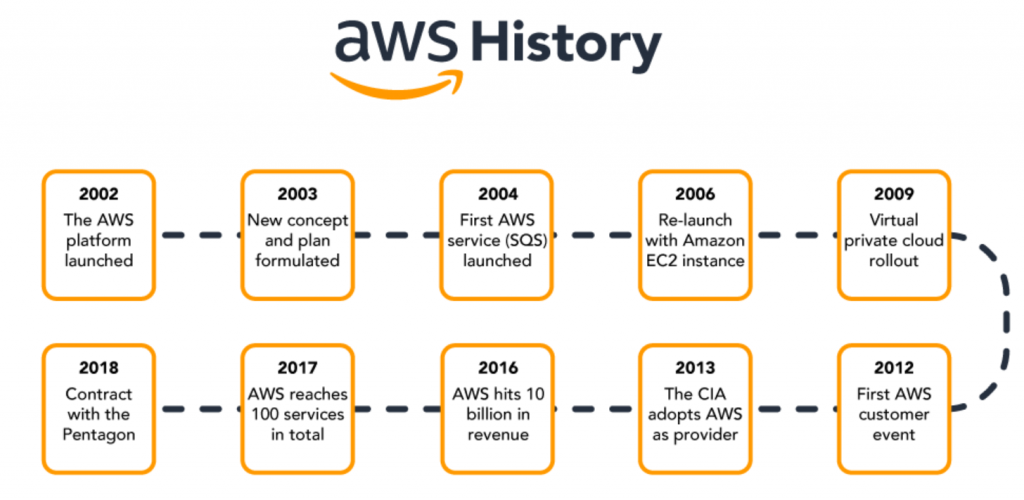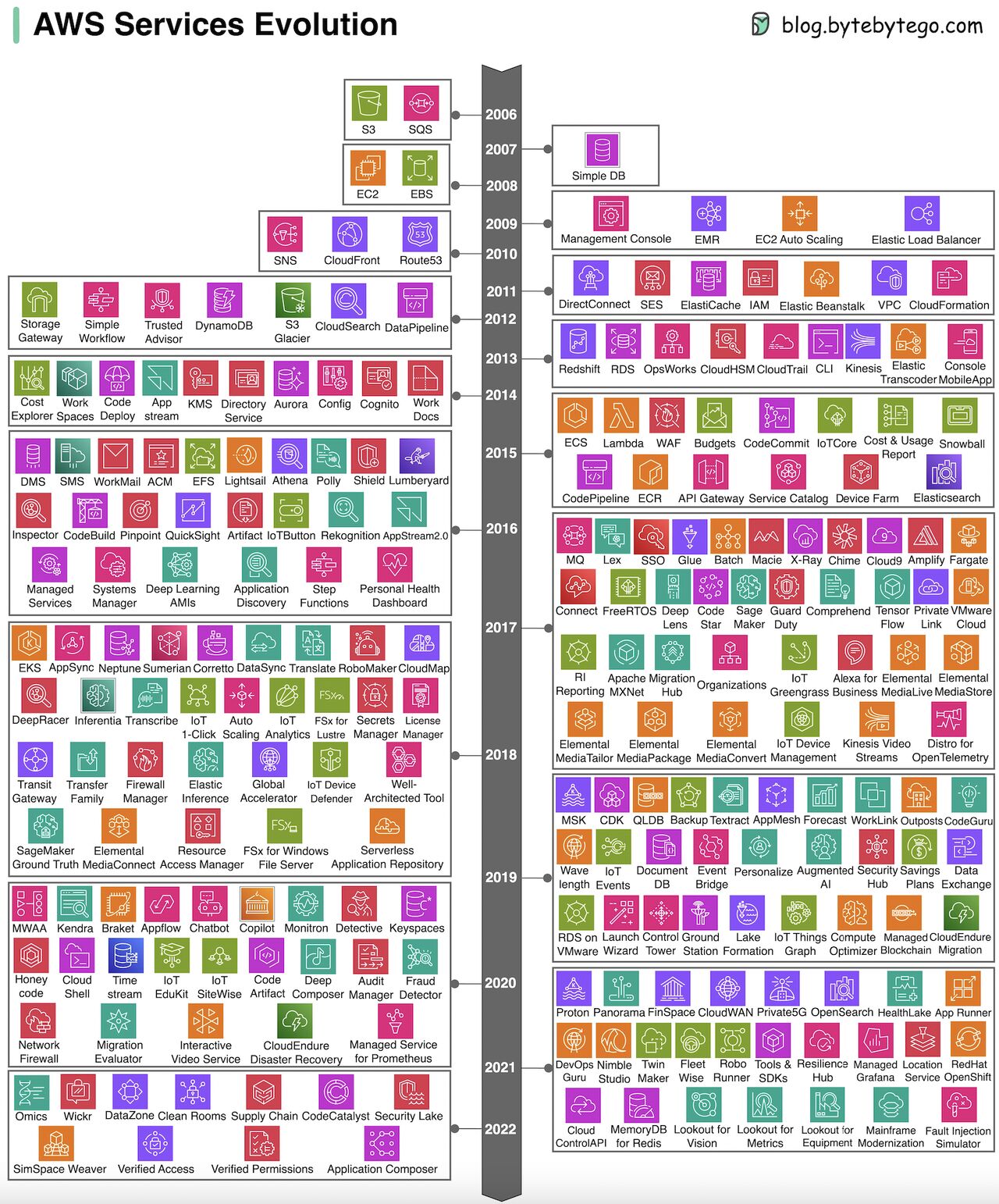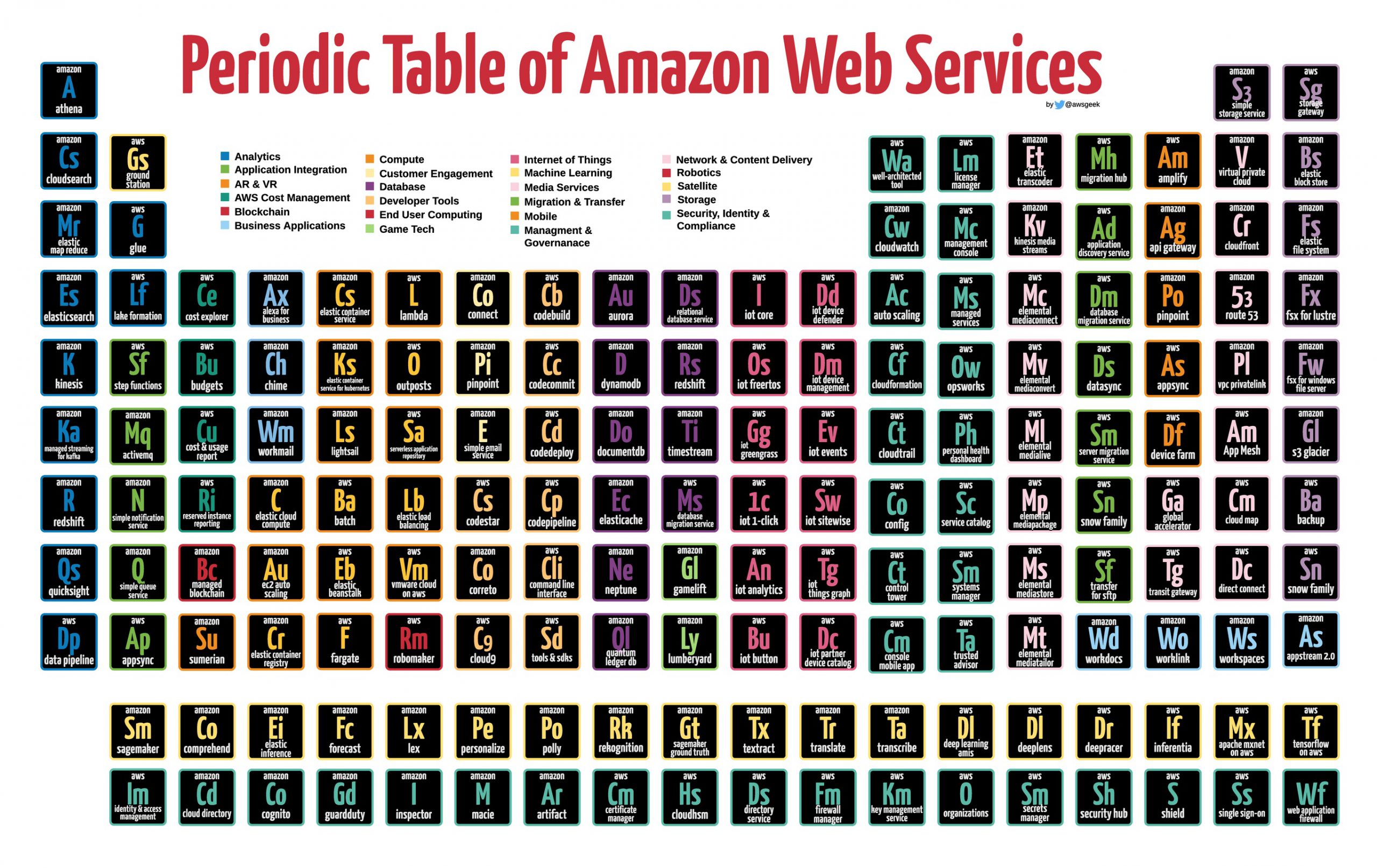

Amazon Web Services (AWS) has been evolving rapidly since its launch in 2006. The company has launched hundreds of new services, and it continues to add new features and capabilities to existing services.
Here are some of the key milestones in the evolution of AWS services:
- 2006: AWS launches its first two services, Simple Storage Service (S3) and Elastic Compute Cloud (EC2).
- 2007: AWS launches Amazon Relational Database Service (RDS), Simple Queue Service (SQS), and Simple Notification Service (SNS).
- 2008: AWS launches Elastic Block Store (EBS), Elastic Load Balancing (ELB), and Auto Scaling.
- 2009: AWS launches Amazon Redshift, Amazon CloudFront, and Amazon SimpleDB.
- 2010: AWS launches Amazon DynamoDB, Amazon Glacier, and Amazon Simple Workflow Service (SWF).
- 2011: AWS launches Amazon Kinesis, Amazon Elastic MapReduce (EMR), and Amazon Elastic Beanstalk.
- 2012: AWS launches Amazon Route 53, Amazon CloudWatch, and Amazon CloudTrail.
- 2013: AWS launches Amazon Cognito, Amazon Lex, and Amazon Machine Learning.
- 2014: AWS launches Amazon Polly, Amazon Rekognition, and Amazon Lex.
- 2015: AWS launches Amazon Lambda, Amazon API Gateway, and Amazon Inspector.
- 2016: AWS launches Amazon Athena, Amazon QuickSight, and Amazon Sumerian.
- 2017: AWS launches Amazon SageMaker, Amazon CodePipeline, and Amazon CodeDeploy.
- 2018: AWS launches Amazon DeepRacer, Amazon Ground Station, and Amazon Chime.
- 2019: AWS launches Amazon ECS Anywhere, Amazon AppSync, and Amazon Managed Workflows for Apache Airflow.
- 2020: AWS launches Amazon App Runner, Amazon Relational Database Service (RDS) on VMware, and Amazon Managed Blockchain.
- 2021: AWS launches Amazon App Mesh, Amazon Managed Kubernetes Service (EKS), and Amazon Managed Service for Prometheus.
- 2022: AWS launches Amazon CodeGuru, Amazon CodeGuru Reviewer, and Amazon CodeWhisperer.
As you can see, AWS has been adding new services and features at a rapid pace. This is a testament to the company’s commitment to innovation and its ability to meet the needs of its customers.
AWS services are constantly evolving to meet the needs of businesses of all sizes. Here are some of the latest trends in AWS services:
- Serverless computing: Serverless computing is a cloud computing model where the cloud provider takes care of the provisioning and management of servers. This frees up developers to focus on building applications.
- Containers: Containers are a way to package and deploy applications. They are lightweight and portable, making them ideal for cloud deployments.
- Machine learning: Machine learning is a type of artificial intelligence that allows computers to learn without being explicitly programmed. AWS offers a wide range of machine learning services, including Amazon SageMaker, Amazon Rekognition, and Amazon Lex.
- Internet of Things (IoT): The IoT is a network of physical devices that are connected to the internet. AWS offers a variety of IoT services, including Amazon IoT Core, Amazon IoT Device Management, and Amazon IoT Analytics.
- Blockchain: Blockchain is a distributed ledger technology that is used to record transactions. AWS offers a variety of blockchain services, including Amazon Managed Blockchain and Amazon Key Management Service (KMS).

Latest posts by Rajesh Kumar (see all)
- What is Mobile Virtual Network Operator? - April 18, 2024
- What is Solr? - April 17, 2024
- Difference between UBUNTU and UBUNTU PRO - April 17, 2024

